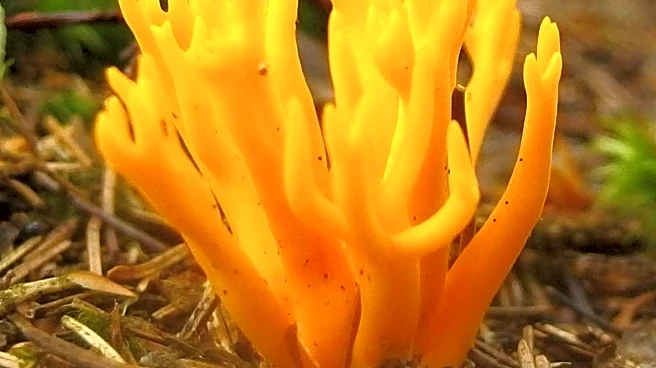What's Happening?
Researchers have engineered a new strain of Metarhizium fungus that emits a floral scent to attract and kill mosquitoes. This innovative approach leverages mosquitoes' natural attraction to flowers, using
a compound called longifolene, commonly found in perfumes, to lure the insects. Once mosquitoes come into contact with the fungus, they become infected and die within days. This method offers a promising alternative to chemical pesticides, which mosquitoes are increasingly resistant to. The findings were published in Nature Microbiology, highlighting the potential of this biological tool in fighting diseases like malaria and dengue.
Why It's Important?
The development of this floral-scented fungus represents a significant advancement in the fight against mosquito-borne diseases, which claim hundreds of thousands of lives annually. By providing a safer and more targeted alternative to chemical pesticides, this method could reduce the spread of diseases in regions heavily affected by mosquitoes. The fungus is harmless to humans and environmentally friendly, as it breaks down naturally. This innovation could be particularly beneficial in poorer countries where mosquito-borne diseases are prevalent, offering an affordable and scalable solution to a global health challenge.
What's Next?
The research team is conducting larger outdoor trials to prepare the fungus for regulatory review. The goal is to develop a diverse set of tools that can be adapted to different regions and mosquito species. As global temperatures rise, mosquito-borne diseases may spread to new areas, including the United States, making this research increasingly relevant. The scientists aim to provide various options to combat these diseases, potentially saving lives worldwide.
Beyond the Headlines
This development could have broader implications for pest control and public health strategies. By using a biological approach, it challenges the reliance on chemical pesticides, which can have harmful environmental and health effects. The adaptability of the fungus to produce different floral odors if mosquitoes evolve resistance highlights the potential for sustainable pest management solutions.









